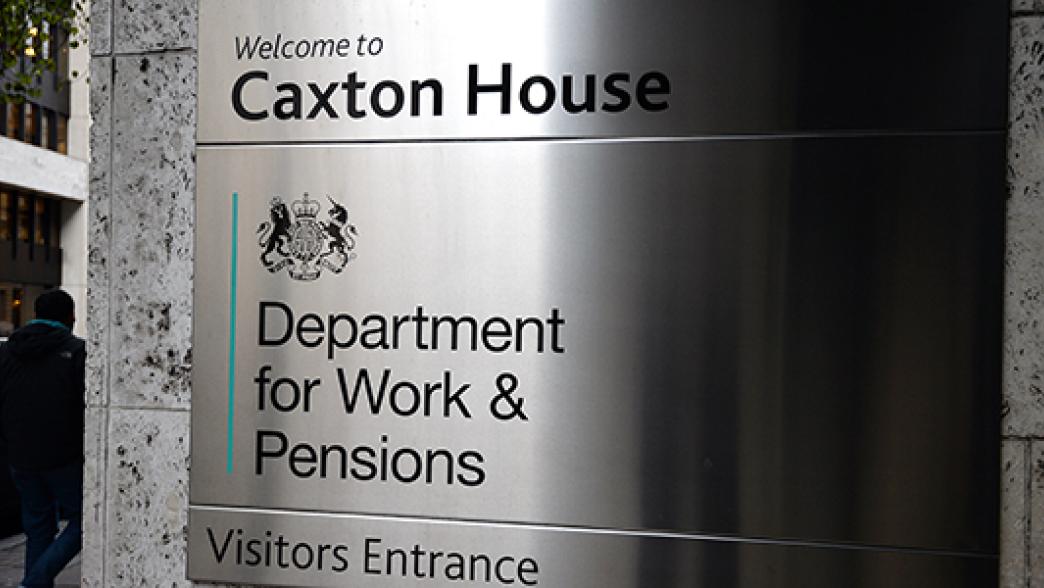Jobs and benefits: The Covid-19 challenge: A joint report by the Institute for Government and Social Security Advisory Committee
Individuals and the economy would benefit from the government rethinking aspects of the support provided to people when they first fall out of work.

Individuals and the economy would benefit from the government rethinking aspects of the support provided to people when they first fall out of work, based on a return to the language of ‘social security’ rather than ‘welfare’.
This report, produced jointly by the Social Security Advisory Committee and the Institute for Government, draws on evidence gathered from experts at two webinars held in Autumn 2020, while acknowledging the deeply impressive way that Universal Credit and the Department for Work and Pensions coped with the huge surge in UC claims as the pandemic took effect.
It says the government should strengthen existing contributory benefits – which provide time-limited support those who have paid into the National Insurance system – to help ensure that periods of unemployment do not permanently worsen individuals’ employment prospects and productivity. The government should ensure that – at the very least – the income available from contributory benefits does not remain below means-tested benefits.
The UK benefits system is both heavily means-tested and provides a level of income that will typically be much lower than an individual was previously earning from the first day that someone loses their job. There is evidence that this – unlike the earnings-related systems in place elsewhere, including in continental Europe – leads to longer term damage to individuals and families, and potentially to the wider economy.
The current level of income provided by out-of-work benefits provides a strong financial incentive to return to paid work. But the fact these are paid from day one of unemployment can encourage people to take any job rather than waiting longer to find one well-matched to their skills and experience. The pandemic is likely to result in large numbers of people losing their jobs, including many skilled workers who would not normally come into contact with the benefits system and Jobcentre Plus. If better skilled workers end up in lower-paying jobs with limited promotion or progression prospects, there can be a detrimental impact on productivity and wages. The government should consider how the UK’s system of benefits and employment support could be better designed to help the economy and individuals to weather adverse shocks, including by strengthening existing contributory benefits.
The report also encourages the government to take a more systemic approach to managing the return to work once the pandemic passes to help workers adjust to the sectoral shifts that Covid-19 has created and exacerbated. This means increasing coordination between the many government departments with a role to play in education, training and labour market policy – which in England includes the Department for Work and Pensions, the Treasury, the Department for Education, the Ministry for Housing, Communities and Local Government and the Department of Health and Social Care.
Other recommendations include:
- The current £16,000 limit on savings for those claiming Universal Credit has not been increased since April 2006. To restore its real-terms value it should be increased to £25,000 and then indexed each year, with funds held in a Lifetime ISA excluded
- If someone’s savings or partner’s earnings disqualify the from means-tested benefits, the government should more actively – on its website and via Jobcentres – point people to the possibility that they may qualify for contribution-based benefits
- To help local authorities support people in returning to work, DWP should automatically and rapidly provide them with much more detailed data on the local population of Universal Credit claimants
- The job search conditions placed on Universal Credit claimants should continue to be used flexibly to ensure constructive relationships between Jobcentre work coaches and claimants enable those who are out of work to find not just any job but a good job
Also authored by Carl Emmerson and Stephen Brien from the Social Security Advisory Committee.
- Topic
- Coronavirus Public finances
- Keywords
- Economy
- Administration
- Johnson government
- Publisher
- Institute for Government